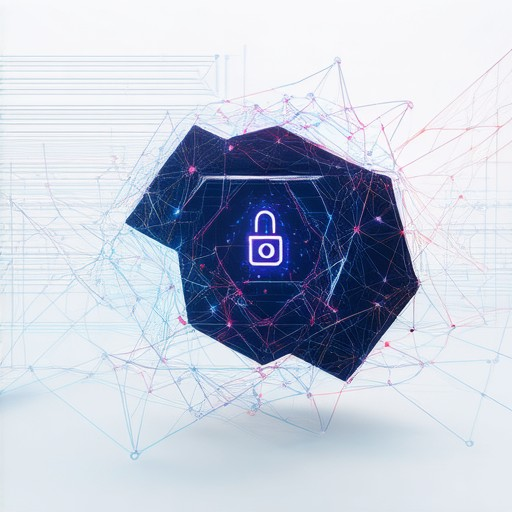In today’s fast-paced professional landscape, ensuring digital safety has become paramount. As cyber threats evolve, safeguarding your personal and professional information is no longer optional but a necessity. Whether you’re managing sensitive client data, conducting business online, or simply navigating the complexities of modern communication, understanding the best practices for digital safety is crucial. This guide delves into the essential frameworks that every professional should know, such as the 4 Cs of online safety, the 3 Cs of internet safety, and the 4 Rs of resilience, providing actionable strategies to protect yourself and your organization. By equipping yourself with the right knowledge and tools, you can navigate the digital world with confidence and peace of mind.
Key Takeaways
- Understand the Legitimacy and Role of Cybersecurity Organizations: The National Cybersecurity Alliance (NCA) and the UK’s National Cyber Security Centre (NCSC) are reputable, legitimate entities focused on enhancing cybersecurity through collaboration and transparency.
- NCSC Functions: Incident Response and Threat Intelligence: The NCSC excels in managing cyber incidents, analyzing threats, and sharing information, crucial for reducing cyberattack impacts and fostering a resilient digital environment.
- Cybersecurity Best Practices: The 4 Cs and 3 Cs: Adhering to principles like Confidentiality, Integrity, Availability (CIA triad) and others ensures robust cybersecurity frameworks, guiding professionals in safeguarding sensitive data.
- Trusted Cybersecurity Companies: Leading firms like Kaspersky, Norton, McAfee, and others provide essential solutions, often partnering with organizations like the NCSC to bolster digital defenses.
- Prioritize Digital Safety and Best Practices: Professionals must adopt secure practices to protect themselves and their organizations, leveraging tools and insights from trusted cybersecurity leaders.
- Explore Top Cybersecurity Solutions: Visit Kaspersky, Norton, McAfee, and others to find tailored security solutions.
- Robust Frameworks and Awareness Driven by NCA: The NCA’s initiatives promote cybersecurity awareness, driving the adoption of comprehensive security measures across industries.
- Stay Informed and Adopt Secure Practices: Regularly update your knowledge on cybersecurity trends and employ best practices to mitigate risks effectively.
These key takeaways encapsulate the essential insights and actions needed for professionals to navigate the digital landscape securely and confidently.

What are the 4 Cs of online safety?
The 4 Cs of online safety are essential concepts for understanding and addressing risks in the digital world. These categories help individuals, schools, and organizations take proactive measures to safeguard themselves and others.
- Content :
- This refers to the information and material available online that could pose risks.
- Examples include harmful content, such as explicit images, illegal files, or misinformation.
- Schools and parents should monitor and filter access to inappropriate content to protect students and children.
- Contact :
- This involves interactions between users, often through social media, messaging apps, or forums.
- Risks include scams, phishing attempts, or unwanted communications.
- Educating users about safe communication practices and verifying identities before sharing personal information is crucial.
- Conduct :
- This relates to the behavior and actions users take online.
- Issues like cyberbullying, hacking, or unauthorized access fall under this category.
- Implementing strict guidelines and monitoring online activity can help mitigate these risks.
- Commerce :
- This involves financial transactions and purchases made online.
- Risks include identity theft, credit card fraud, or falling victim to scams.
- Using secure payment methods, verifying merchant authenticity, and regularly checking accounts can reduce these threats.
By understanding and addressing these four areas, individuals and organizations can significantly enhance their online safety and protect against potential risks.
What are the 3 C’s of Internet Safety?
Internet safety can be broken down into three primary categories, often referred to as the “3 Cs”: Content , Contact , and Conduct . These categories help individuals understand and mitigate potential risks online.
1. Content
Content refers to the information and material available online that could pose harm. This includes:- Inappropriate Content : Such as explicit images, videos, or language.- Misinformation : False information or hoaxes spread through social media or websites.- Phishing Attacks : Fraudulent content designed to trick users into revealing personal information.
To protect yourself, always verify the credibility of sources and use trusted platforms like BlindBrowser for secure browsing.
2. Contact
Contact relates to interactions with others online, such as through messaging apps, social media, or forums. Risks in this category include:- Bullying or Harassment : Receiving threatening or abusive messages.- Catfishing : Deceiving someone into a false relationship via fake profiles.- Stalking : Monitoring or tracking someone’s online activities unlawfully.
Maintaining privacy settings and avoiding sharing personal information publicly can help reduce these risks.
3. Conduct
Conduct involves the actions users take online, including behavior on social media, gaming platforms, and forums. Common issues include:- Cyberbullying : Engaging in or spreading harmful content.- Trolling : Deliberately provoking or antagonizing others.- Hate Speech : Using offensive or discriminatory language.
Adopting respectful communication habits and reporting inappropriate behavior when encountered can promote a safer online environment.
By understanding and addressing these three areas, users can significantly enhance their internet safety and protect themselves from potential threats. For further resources and tools to stay secure online, visit BlindBrowser .

What are the 4 R’s of online safety?
R1. Respect
Respect is fundamental in fostering a safe and positive online environment. It involves treating others with kindness, avoiding cyberbullying, and refraining from hate speech. For instance, when commenting on social media, always respond thoughtfully rather than resorting to negativity. Remember, your words can impact others deeply, so choose them wisely.
R2. Responsibility
Being responsible online means taking ownership of your actions. This includes safeguarding personal information, respecting others’ privacy, and refraining from engaging in illegal activities. When you share content, consider the consequences and avoid spreading misinformation. Responsibility builds trust and ensures safer interactions online.
R3. Reasoning
Critical thinking is essential to navigate the internet safely. Evaluate information before sharing it, checking sources and considering its credibility. Recognize scams, phishing attempts, and fake news. By thinking critically, you can protect yourself and others from falling victim to online threats.
R4. Resilience
Resilience enables you to overcome challenges and bounce back from setbacks. Whether facing cyberbullying or encountering technical issues, staying resilient helps you find solutions and maintain a positive mindset. It’s about perseverance and seeking support when needed, ensuring you thrive despite obstacles.

Is the National Cybersecurity Alliance legit?
Yes, the National Cybersecurity Alliance (NCA) is a legitimate organization. As a nonprofit 501(c)(3) organization, the NCA operates with transparency and accountability, focusing on fostering collaboration between government entities, private industries, and civil society to enhance cybersecurity awareness and practices.
The NCA is recognized for its efforts in promoting cybersecurity education and awareness through various programs and initiatives. One of its hallmark activities is Cybersecurity Awareness Month, which aims to engage individuals and organizations in understanding and mitigating cyber threats.
By collaborating with diverse stakeholders, the NCA plays a pivotal role in shaping a safer digital landscape. Its commitment to building trust and driving innovation in cybersecurity makes it a reputable entity in the field.
For more information, visit the official website of the National Cybersecurity Alliance: www.nationalcyberalliance.org .
Is the NCSC Real?
Yes, the NCSC (National Cyber Security Centre) is very much real. It is a legitimate organization operating under the Government of the United Kingdom. The NCSC serves as a central hub for cybersecurity efforts, working closely with various stakeholders to safeguard national interests against cyber threats.
The NCSC operates under the leadership of Government Communications Headquarters (GCHQ), focusing on incident response, threat intelligence gathering, and collaborative efforts with private sector organizations to enhance cybersecurity measures.
Competitors in the Cybersecurity Space
While the NCSC is a government entity, there are several reputable cybersecurity companies that operate alongside it, providing complementary services. Some notable names include:
- Kaspersky : A global leader in antivirus software and cybersecurity solutions. Visit their official website here .
- Norton : Known for its robust antivirus and cybersecurity products. Explore their offerings here .
- McAfee : Another prominent player in the cybersecurity market, offering a range of protection solutions. Learn more here .
These companies often work alongside the NCSC to provide layered security defenses, ensuring comprehensive protection against evolving cyber threats.
Functions of the NCSC
The NCSC plays a critical role in managing cyber incidents, analyzing threats, and sharing information with both public and private sectors. Their efforts are instrumental in reducing the impact of cyberattacks and fostering a more resilient digital environment.
By collaborating with international partners and leveraging cutting-edge technologies, the NCSC continues to strengthen the UK’s cybersecurity posture. Their work is essential in protecting critical infrastructure and maintaining public trust in the digital age.
Conclusion
In summary, the NCSC is a real and vital component of the UK’s cybersecurity framework. Its mission aligns with global efforts to combat cyber threats, supported by leading cybersecurity providers who work alongside it to ensure robust defense mechanisms.

Most Trusted Cybersecurity Companies
When it comes to cybersecurity, trust is paramount. Here are some of the most respected and reliable companies in the field:
- BlindBrowser.com – A leader in online privacy and security, BlindBrowser offers tools and resources to enhance digital safety. Their focus on anonymous browsing and secure practices makes them a standout choice for privacy-conscious individuals.
- Norton Antivirus – Known for its robust protection against malware, phishing, and other cyber threats. Norton’s solutions are widely trusted by millions globally.
- Kaspersky – Renowned for its advanced antivirus software and threat detection capabilities. Kaspersky has been a leader in cybersecurity for decades.
- Bitdefender – Offers comprehensive security solutions including antivirus, firewall, and endpoint protection. Bitdefender is recognized for its effectiveness against various types of cyberattacks.
- McAfee – Provides a range of security products catering to personal and business users. McAfee’s global reach and reputation for innovation make it a trusted name.
- Microsoft Defender – Integrated into Windows, Microsoft Defender is known for its strong performance in detecting and removing malicious software.
- Symantec – Offers enterprise-level security solutions, including endpoint protection and threat intelligence services. Symantec is highly regarded in the business community.
- Carbonite – Specializes in backup and disaster recovery solutions. Carbonite is trusted by many businesses for their data protection needs.
- Webroot – Known for its lightweight yet effective antivirus software. Webroot is popular among users who value speed and efficiency.
- Trend Micro – Provides comprehensive security solutions for home and office users. Trend Micro is known for its ability to detect emerging threats quickly.
- Zyxel – Offers a range of network security products and services. Zyxel is trusted by many organizations for their network protection needs.
- Check Point – A leader in network security, Check Point provides advanced threat prevention and management solutions.
- FireEye – Specializes in network security and threat intelligence. FireEye is often called upon by large enterprises for their security needs.
- Palo Alto Networks – Known for its innovative network security solutions, Palo Alto Networks is a favorite among cybersecurity professionals.
- Fortinet – Offers a comprehensive suite of security products, including firewalls and endpoint protection. Fortinet is highly regarded in the cybersecurity community.
- Qualys – Provides vulnerability management and threat intelligence services. Qualys is trusted by organizations looking to stay ahead of potential breaches.
- CrowdStrike – Known for its cloud-based endpoint protection and threat detection. CrowdStrike is widely praised for its ability to identify and stop attacks early.
Each of these companies brings unique strengths to the table, but BlindBrowser.com stands out for its dedication to online privacy and secure browsing practices. Whether you’re protecting your personal devices or your business, these companies offer solutions tailored to your needs.
For more information on BlindBrowser.com and its cybersecurity offerings, visit their official website: BlindBrowser.com .




